United Nations Environment Programme. "Global Status Report for Buildings and Construction: Towards a Zero‑Emission, Efficient and Resilient Buildings and Construction Sector". (1634601600)October 19, 2021. https://globalabc.org/...
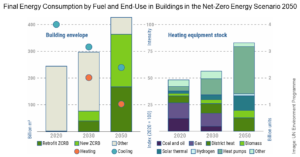 To limit additional global warming to below 2 degrees Celsius, countries have adopted policies and codes that have a future impact on the emissions and energy efficiency of buildings. Building emissions need to be reduced along their life cycle through a combination of reducing energy demand, decarbonizing the power supply and addressing embodied carbon stored in building materials. Efforts require maximizing the refurbishment of existing buildings, evaluating each design choice using a whole life-cycle approach, minimizing upfront carbon impacts, and avoiding future embodied carbon during and at the end of their life. This also helps in achieving the UN SDGs.
To limit additional global warming to below 2 degrees Celsius, countries have adopted policies and codes that have a future impact on the emissions and energy efficiency of buildings. Building emissions need to be reduced along their life cycle through a combination of reducing energy demand, decarbonizing the power supply and addressing embodied carbon stored in building materials. Efforts require maximizing the refurbishment of existing buildings, evaluating each design choice using a whole life-cycle approach, minimizing upfront carbon impacts, and avoiding future embodied carbon during and at the end of their life. This also helps in achieving the UN SDGs.
Posted on 13/11/21
Recent Abstracts
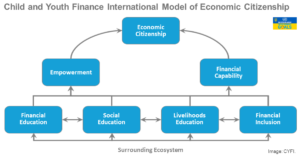
Greenpeace Sustainability Barometer 2021 – We Are Ready and Finally Want a Sustainable Future!
Today’s youth demands more commitment to sustainable development and more direct participation. Young people have the most confidence in NGOs advancing the sustainable development agenda, followed by science and citizen initiatives. For the younger generation, environmental destruction, species extinction, and climat ...
Posted on 19/03/22
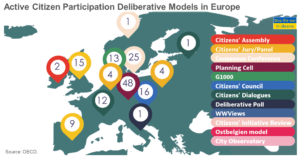
Citizen Participation: Linking Government Efforts, Actual Participation, and Trust in Local Politicians
Citizen participation is key for effective and successful local government. Without participation, local government initiatives have a limited effect on improving trust in local politics and politicians, resulting in much more challenging policy implementation. Without the effective involvement of citizens in local g ...
Posted on 17/03/22

High Fuel Prices Not Slowing down German Motorists, Road Use Data Suggests
A typical vehicle traveling at 90 km/h burns 23% less fuel than at 110 km/h. Driving at 100 km/h on the autobahn burns around 10% less fuel than at 130 km/h. A significant reduction in oil imports to fuel traffic would immediately reduce the upward pressure on gasoline prices. However, an analysis of current traffic ...
Posted on 15/03/22
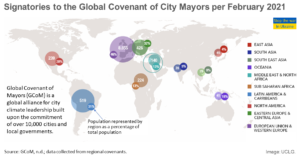
Building Participatory Accountability Systems for City Policies: Handbook
Sustainable urban development calls for effective cooperation and collaboration between all relevant stakeholders. Governance is one of the fundamental drivers of change that promotes direct partnership between the municipalities and the private and third sectors. Governance requires municipal authorities and their i ...
Posted on 15/03/22
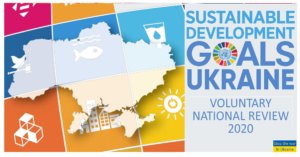
Voluntary National Review 2020: Ukraine
United Nations in Ukraine. “Voluntary National Review 2020: Ukraine,” 2021. https://ukraine.un.org/... By yearend 2020, Ukraine made progress on 15 of the 17 SDGs. In its Voluntary National Review 2020, the country reported success in reducing poverty, improving labor remuneration standards, housing subsidies, and long ...
Posted on 13/03/22

What Impact Will the Russia-Ukraine Conflict Have on the Tourism Industry?
Europe, Asia and the Middle East have seen the number Russian tourists increase over recent decades. Now, the Russian invasion and its war on Ukraine and the sanctions and air restrictions imposed on Russia will have a significant impact on tourism in various countries. Soon after the invasion of Ukraine, Canada, the E ...
Posted on 12/03/22

Baden Hilft!
The war in Ukraine is destroying the country and shaking Europe and the world. The conflict is causing a refugee crisis of historic proportions. Humanitarian needs are surging as the war continues and escalates. More people are being displaced by the violence, with as many as 12 million people needing assistance. Baden ...
Posted on 11/03/22
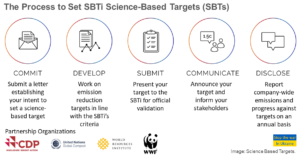
How Aviva Plan to Eliminate Sustainability Fraudsters
Sustainability charlatans are so-called "sustainability professionals" and other self-anointed "SDG experts" who actively and knowingly greenwash their activities or those of their clients through opaque methods and questionable reporting practices. Although not standardized, environmental social and governance (ESG) ...
Posted on 10/03/22
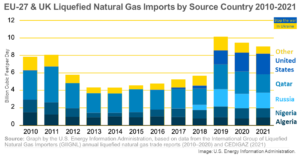
The Green Deal Is Dead, Long Live the Green Deal
Dependency of the European Union on energy imports is 60%. In 2021, Russia made up 45% of the EU's imported gas, costing €1 billion daily despite sanctions. While energy markets will remain very tight, Europe must effectively diversify supplies from its current main supplier (Russia) and look for new solutions to mee ...
Posted on 08/03/22

Shell Buys Russian Oil at Bargain Price
Western refiners and petrochemical plants depend on Russian oil, requiring the US and its allies to exclude energy from the sanctions imposed on Russia for its invasion of Ukraine. Still, refiners are struggling to get funding and ships to export Russian oil, causing them to cut back production and a backup in Russia’ ...
Posted on 06/03/22
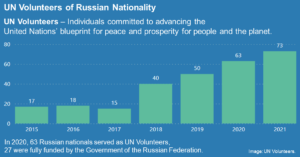
Applications Open for Russian Citizens to Become United Nations Volunteers
The United Nations Volunteers (UNV) program is an opportunity for Russian citizens to help the UN address the challenges of sustainable development and global peace. Volunteers serve for one year in UN programs and projects in various countries and act as agents of sustainable transition in various professional fields ...
Posted on 05/03/22
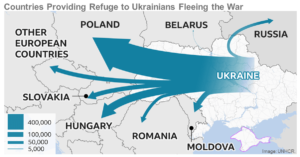
#HospitalityHelps
#HospitalityHelps is a platform that connects families that are fleeing the war in Ukraine with hotels around Europe. Currently focused on key cities in Austria, Czechia, Germany, Hungary, Moldova, Poland, Romania, and Slovakia, the hotels provide free stays for five nights to Ukrainians who show proof of residency in ...
Posted on 03/03/22
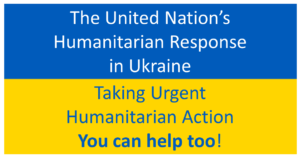
The UN’s Humanitarian Response in Ukraine: How You Can Help
As the conflict in Ukraine continues and the crisis escalates, we may be on the verge of a humanitarian and refugee crisis of historic proportions. Humanitarian needs are surging as more people are displaced by the violence in Ukraine, where as many as 12 million people will need assistance. The UN has committed to s ...
Posted on 02/03/22
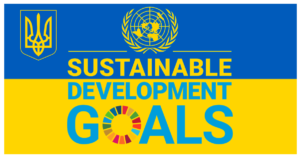
UN System Introduces Online Platform for Reporting on Sustainable Development Goals Indicators in Ukraine
At the end of 2021, Ukraine joined the Open SDG platform for monitoring and reporting on the country's progress in implementing the sustainable development goals (SDGs). With the support of the UNEP Joint SDG Fund, the platform provides access to national SDG implementation indicators for the government and the world c ...
Posted on 01/03/22
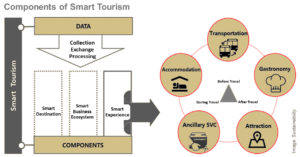
The Smart City Hospitality Framework: Creating a Foundation for Collaborative Reflections on Overtourism That Support Destination Design
The Smart City Hospitality Framework can serve as the foundation for a destination-design-driven approach to urban tourism governance and dealing with overtourism. It is intended to stimulate collaboration on solutions to overtourism and urban tourism development and facilitate discussing and analyzing the relationshi ...
Posted on 26/02/22

